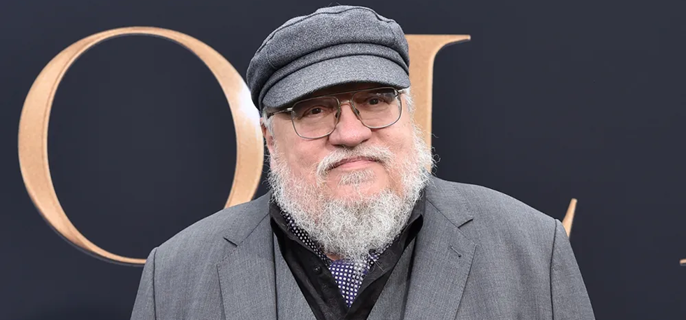It has been approximately three years since the first AI copyright lawsuit was filed, and while the full picture remains unclear, certain cases are starting to reveal their winners and losers. OpenAI, in particular, appears to be among the early losers in the case brought by book authors who have been building a formidable case that could force the tech giant into a pre-trial settlement. Earlier this week, a federal court advanced two new theories of infringement against the Sam Altman-led firm.
The authors, including George R.R. Martin, have several ways to win their case. They are advancing three different arguments in total: Firstly, that the training of AI models on copyrighted books constitutes infringement, a common theory brought by most creators when the first wave of lawsuits was filed; secondly, a newer argument over the practice of pirating books from shadow libraries that weren't used for training; and lastly, that answers generated by ChatGPT are substantially similar to the books they were trained on.

The theory of illegal downloading of books has evolved over the course of the litigation. Initially, lawyers for the authors connected the piracy directly to OpenAI's model training under a single umbrella. But after the various class actions against OpenAI and Microsoft were consolidated, they separated the theories and alleged that the distinct act of illegally downloading the works, regardless of whether they were used for training, constitutes copyright infringement. OpenAI argued that its opposition improperly added an entirely new claim to the case without notice.
However, there was one win for authors in another AI copyright case initiated by Andrea Bartz against Anthropic, related to the company illegally downloading millions of books. While the decision heavily favored Anthropic, the court greenlit that theory for trial. Anthropic later agreed to pay $1.5 billion to settle the lawsuit, despite the ruling largely siding with the AI company on fair use. The lawyer heading that case, Justin Nelson, is also the lead lawyer for Martin.
On Tuesday, U.S. District Judge Sidney Stein permitted the separation of the shadow library and training theories. "The prior class complaints asserted a cause of action for copyright infringement and alleged that OpenAI impermissibly downloaded and reproduced plaintiffs' books," the judge wrote. "The fact that many of the allegations in the prior class complaints suggested that the ultimate purpose of the reproduction was to train OpenAI's LLMs is not dispositive."
With statutory damages for copyright infringement reaching up to $150,000 but without double-dipping, the authors only need to prevail on one of their theories to maximize damages. And in one of the more surprising findings, Stein also concluded that ChatGPT's answers can possibly be found to infringe upon the books they were trained on. The court pointed to a summary of Martin's A Song of Ice and Fire: "Members of the Night's Watch, a sworn brotherhood tasked with defending the realm from threats beyond the Wall (a giant ice structure in the North), are attacked by mysterious and deadly creatures known as the White Walkers, thought to be mere legends." Here, the court said that a reader could "easily conclude that this detailed summary is substantially similar" to the book because it "conveys the overall tone and feel of the original work by parroting the plot, characters, and themes of the original."
Outlines for potential sequels to Martin's works played a part in this decision. When prompted with an alternative sequel to A Clash of Kings that diverged from A Storm of Swords, ChatGPT answered, in part: "Instead of being betrayed, Robb Stark creates a surprise alliance with Renly Baratheon's remaining supporters, drastically changing the balance of power in the war." The court, which stressed that it was not opining on fair use, said that a jury could undoubtedly find that the output infringes on Martin's works.

